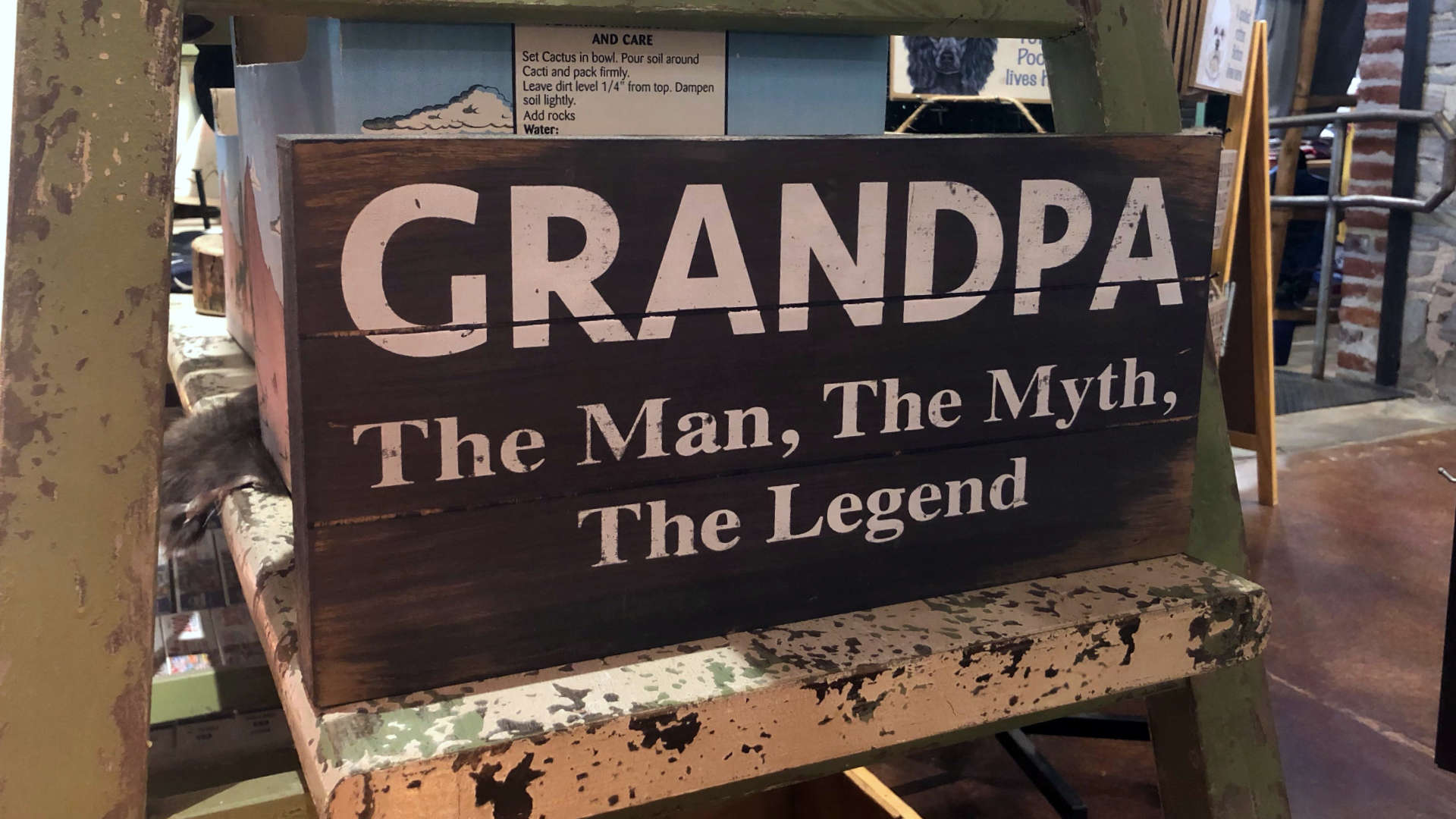Have you really taken a moment to stop and think about what the wealth you’re building is for? I don’t mean basic motivation that drives just about everyone to save money. I’m not asking about obtaining the ability to pay your bills, make ends meet, or create some sort of “contented life”.
Rather, I’m asking you if you have thought about the purpose behind your pursuit of something beyond the normal—financial independence.
Why are you doing it?
What’s the Point of FI?
It goes against the consumerism ingrained in our western society and it certainly works against the zillion dollars spent on marketing campaigns to drive a wedge between you and your money.
So, what’s your motivation for being on this journey to financial independence?
From the conversations I’ve had with others around this topic, I suspect that it’s pretty common to have just a general idea. A faint thought about how you want “financial freedom” and to “not have to worry about money”.
There’s not anything particularly wrong with that.
But is that enough to keep you charging through the jungle of modern culture, filled with cunning tricks to set you off your path to financial independence?
When the ads appear for the PS7 and iPhone 18 complete with holographic displays and the deeply intimate experience they promise, will you be able to continue to say no?
Think that sounds easy? Don’t like gadgets and games?
Well, what about when your family and in-laws visit and comment on your—*hem*—eclectic—decor and design choices? Still no problem?
How about when your friends want to Uber to the new speakeasy down the street after having a “quick bite” at the popular haute restaurant around the corner with the little plates with even littler food but curiously listed prices that, like the food, apparently needed to cut the extras and hide the dollar sign and trailing zeros?
Are you still laughing your way through it all, untempted to participate in today’s silly spending society?

Bend, don’t break
If you think you’re immune, you’re probably brittle, too. There’s something that’ll get you.
It’s far better to find and acknowledge your money weaknesses.
When you do this, you can develop resilience. Flexibility.
Instead of being quite so stalwart and unmovable, you can budge when you need to and avoid reaching that limit that breaks you.
Folks don’t fall off the path to financial independence because they had a night out with friends and blew $200 that one time. Rather, people often create an idealized version of their financial lives.
They tally up their bills and ideal (minimum) spending by category. They don’t believe they’ll lose to lifestyle creep or family inflation.
Then they force themselves to live up to this calculation. They let perfect be the enemy of good.
It’s when the journey to FI is just about the numbers, a means to an end.
Is that you?

Are you special?
It’s hard enough to choose to do, well, just about anything over the course of years—and probably decades for most. It’s even harder to look the masses in the eye and tell them you’re not going to play the same game they are.
While they’re out there lining up the ideal career path and chasing the dream of becoming a partner or just a little industry fame and that corner office in twenty years, what are you doing?
Lining up your stacks of VTSAX and planning an exit from your employer, or freelance gig, or however it is that you make money—so that you can retire early and live the “sweet life”?
Why do you think they’ve got to dedicate themselves to the next shekel and you don’t?
Do you think you’re better than them (hint: you’re not)?
It’s not free
Anyone who tries to convince you that pursuing FIRE doesn’t also involve some loss, some sacrifice, or the very least—loneliness—shouldn’t be trusted.
My fellow writers love to sing the praises of the freedom that can be found when the back of your head isn’t filled with worries about the bills or your next paycheck.
Freedom!
- Freedom from a tyrannical boss.
- Freedom from a work-life balance that looks like a seesaw with a mopey adult on one side and three kids trying to yank down the other end.
- Freedom from a scheduled, repetitive day.
And they’re right.
It’s beautiful.
But in the same breath, we seem to forget what it took to get there. Convincing those around us it’s worth it, that we’re not crazy, and hey look—there’s math behind it all!
And if you like the idea of having freedom “from” different difficulties in life, have you thought about what will replace those difficulties? That’s freedom “to”—it’s adding to life!
What’s your “why”?
What separates you from those that don’t achieve FI might be the “why” behind what you’re choosing to give up. Your “why” can sustain you if it means something to you. It’s the flex you add to your strength, the resilience to bend.
I’ve spent most of the last couple of months traveling in the US.
- Wisconsin to see a good friend and meet an addition to her family, and to enable her to escape life for a bit by adding a slice of adventure and a reminder of her past.
- Florida to escape my own life for a bit by basking in the waves and the sun.
- Arizona to try to find the bottom of a really big crack in the earth, then taking time to appreciate two members of the “greatest generation” that raised the woman that half raised me.
- California to dip into the other ocean and see a dear friend I’ve known since I rode a yellow bus to school.
Even in some of the tougher parts—like worrying about the future while traveling in the midst of a pandemic—I’ve loved it. And this is the moment you might think I’m going to tell you that my “why” is “to travel”.

Who are you?
I suppose, in some way, it is—I do love traveling and the novelty it offers as I’ve said before on TicTocLife. But that’s not really it.
Rather, it’s to take advantage of the opportunity to explore what does matter to me. It’s the little moments with friends that stretch across years. An opportunity to take in nature in a way that could haunt or release you. And a chance to understand more of where I came from so that, years from now, I don’t look back and kick myself wishing I had spent more time with them before they were gone.
For me, financial independence affords the opportunity to explore life and seek understanding. It’s a shot at introspection in a way that I don’t think is possible with the guillotine of debt and insecurity hanging over your neck day-to-day.
Even with 40 just a few more trips around the sun ahead of me, I still don’t feel like I know quite who I am. I might never. Seeking the answer to that question might just be an exercise in narcissistic navel-gazing.
But I can accept that, maybe that’s part of who I am.
But who are you?
What drives you?
Why Does FI Matter (to You)?
I think for a lot of folks with the great fortune to even consider pursuing financial independence, we don’t have a clear answer to this question. There’s a vague sense that we want freedom and choice.
But with so many of our needs met in our rich, western culture, it might be hard to clearly define meaningful wants.
There are countless stories across FIRE forums and comment sections about people reaching their perceived goal (at least, the money part) and hating what came after it.
Some points I often see repeated elsewhere from that post (emphasis mine):
I was not prepared for the onslaught of judgment from others as well as my own insecurities.
I don’t know if it’s FIRE, or the complexities of modern womanhood, but this has been a terrible experience. […] But so far I just feel impatient with [my kids] and insecure with myself.
The difficulty in facing the judgement of others while you’re pursuing FIRE only multiplies once you’ve reached that milestone.
Besides their judgement—the “them” part—there’s also the “you” part.
You lose a piece of your identity. “So, what do you do?”, they ask. Before, you could easily declare an answer. But now?
You don’t get to hide behind the veil of your work. The question becomes more about you.
Sustaining FI
Reaching financial independence is difficult enough from just a practical financial perspective. But the psychological part of it adds another layer of difficulty.
And once you’re there, it’s not over.
You don’t reach FI and quit.
Rather, it’s a matter of maintaining it. Sustaining it.
To me, the basic part of FI is securing your physiological needs and a sense of safety. But it also frees you to pursue love and esteem in a way you might not have thought possible before. Though that’s not the end, either.
You have to motivate yourself to stretch beyond need, and perhaps most importantly, define what “need” is to you. Reaching for financial independence is an exercise in defining what you want from life.
Build the life you want…
- Avoid trying to meet the life expectations of others; it’s wasting your own.
- Comparison can be your thief of joy or superpower if you let it.
- Your mission is to find the things you love doing; define your hobbies.
- Don’t let “retirement” scare you away from toil; embrace creativity.
- Seek and get comfortable with an identity all your own.
As those pieces fall into place, you’ll find yourself working on your greatest and most difficult project in life—yourself.
It’s been a while since I’ve had a chance to sit down and really write! Our recent travel sprint is on a break and I feel mostly caught up on life’s chores. My brain has a backlog of topics I want to cover on TicTocLife—from expanding on the money mindset (like this very article) to an early retirement update and more traditional research articles—so I suspect you’ll see a lot more throughout October.
Update: checkout the followup to this article that expands upon the idea of “freedom” and how there are two different types—freedom “from” and freedom “to”.
What are your tips for creating a sustainable path TO and AFTER Financial Independence? What’s your “why”? Let me know in the comments!


18 replies on “What’s Your “Why”? (And the Point of FI)”
Really nicely put, Chris. I especially agree with the bullet points you’ve listed at the end about building the life you want. It’s so incredibly hard to stop reaching for things that are based on others’ expectations for you, let alone to then define what a successful life looks like to you and take that path. I’ve figured out the importance of these things, but still struggled in walking the path at times.
While my short answer to this question is almost always “freedom”… there is clearly more nuance to it than that. Freedom can be the why for anyone. However, what it represents, will differ from person to person. And following someone else’s definition will make the journey to FI (and post journey) difficult to sustain.
My why is freedom to live the life I want to live, which involves being present for my family, indulging in the simple things in life, giving back in ways that feel meaningful to me, spending time finding and fine-tuning my passions (once I figure out what those are), and being able to spend more time appreciating nature.
Hey Mrs. RFL! Thanks for coming by and saying hi! 🙂 Glad you enjoyed the article, too.
I’d suggest you’re far from alone in this! It’s one thing to know…a thing, but it’s another to put it into action and internalize—to make it part of you.
I’m glad you’re working through the topic of “freedom”! My next post will be on exactly that (shh, don’t tell anyone!). It’s about the difference between obtaining “freedom from” and achieving “freedom to”. They really do mean something different!
Lastly, I love you freely admitting to not necessarily knowing what your passions are (“once I figure out what those are”). I don’t think that’s easy for most folks to say, and I also don’t think it’s uncommon. I’d love to explore that more in the future. We shall see.
As always, thanks for being so engaging!
I really appreciate the candor of your article about finding out what’s important to you. Creating your own path and how FIRE is really just part of that journey. It’s not the end. It’s one big step in the direction that we all want to go to. Where that is nobody completely knows.
It’s nice to share the yearning for something beyond the “corporate” working life. Even if we don’t readily know what that is other than “freedom” to discover it.
It helps if we have passions that we want to pursue and have more time for. It’s great if we have a definite purpose but it’s not always crystal clear.
Sometimes the only thing that is super clear is that we all share a desire to not be controlled, to be independent, to be creative and to find our path.
Not everyone understands that. And they are usually still in the rat race forever.
There’s more to it than money.
Hey Ax! Thanks for coming by 🙂
I really like this quote — “Sometimes the only thing that is super clear is that we all share a desire to not be controlled, to be independent, to be creative and to find our path.” — and it juxtaposes so nicely against an episode of Freakonomics I was listening to earlier (#470, “The Pros and Cons of America’s (Extreme) Individualism”). What you’re saying here makes perfect sense to me, and undoubtedly lots of other readers… But, there’s a huge portion of the population outside individualistic countries that just don’t see it the same way. And certainly not in a negative way, but rather — differently.
There are some deep collectivist ideals out in the world that just rub so strongly against the virtues I’ve written about here and that you’re taking further, too. That podcast episode does a good job of highlighting how different we could grow up—different cultures, different societies—that can easily put us at a disadvantage to attaining FI. That’s not necessarily a disadvantage in the grand scheme of life—collectivist ideals have their own sort of surprising goals like FI no doubt—but at least in terms of FI, it helped me understand that folks can just be wired differently. Raised differently. And even in my own backyard. It can just not be a priority.
But yeah, I think we can all agree… There’s more to it than money. 🙂
Thanks for a fun comment!
I am pursuing FI because after being suddenly laid off just after starting what promised to be a stable, rich career I learned I cant depend on a MegaCorp for financial security. Further, I also cant stand wasting beautiful days inside, I would rather be out on hikes or bike rides. There are so many places to see and things to do that just wont fit in 3 weeks of PTO per year. I also dont like that 95 percent of what I do and when I do it is determined by my work schedule.
Honestly, it’s not the difficulty of work, but the relentlessness and omnipresence of it. I have a ‘cupcake’ job and the effort to pay ratio is pretty nice. I don’t mind doing it, but I couldn’t stand the thought of doing it for the next 35 years. Also I know I am one ‘business decision’ away from unemployment or an organisational change leaving me with a toxic supervisor. The best time to prepare for winter is in the summer.
There’s got to be more to life than school for 25 years, followed by work for 40 years just to have statistically 13 years of retirement, approximately half of which will likely be in poor health due to inactivity because of work. That’s a pretty raw deal, and I’m willing to forego the SUV and McMansion to get there.
Dominic! Thanks for dropping in again.
I appreciate your clear and concise opening in your comment. It’s great to hear someone who a pretty defined reason!
This really jived with my personal truth that really motivated me to find FIRE —
“I don’t mind doing it, but I couldn’t stand the thought of doing it for the next 35 years.”
I had a pretty similar setup—good money, the work wasn’t overwhelming. I even had pretty good friends and remarkable flexibility (I could remote work a couple days a week when that wasn’t a thing quite like today a decade ago). It wasn’t so bad, persay.
It just wasn’t what I wanted to fill my days with.
And to your final paragraph’s point—that’s what really mattered. Only so many trips around the sun and then that’s that. We’re done. So how many are we willing to give up in a state of mediocrity to release ourselves to find something better?
All the while, one of the hardest parts, is accepting that “something better” is surprisingly elusive for a lot of folks.
I’d love to see your breakdown on motivations behind pursuit, staying the course, and staying FI. There’s a lot of subcategories under the intrinsic and extrinsic motivation labels.
Judgement from others, even if imagined, can be tough to deal with. It can be hard to demonstrate progress without some type of conspicuous consumption signaling.
I find myself more turned off by competition (in many areas), but very motivated by completion (meeting an objective, hitting a milestone, finishing a box of cereal, doesn’t much matter).
Thanks and keep writing!
Hey David! Thanks for the comment and suggestion!
I touched on both my own personal motivations and those I see others frequently have for FIRE in the follow-up to this post about the types of freedom — check it out!
You’re right about the need to display your successes, even where you don’t want to keep up with the Joneses. I could live in a small, 1 bedroom apartment. But I choose to live in a 2 (arguably 3) bedroom that’s certainly more than I need. Part of that is feeling like the space is helpful and useful, but there’s also a part that wants to be able to have friends and family over without them wondering why I’m in a 1 bedroom studio. I think there’s a balance to be struck. We could afford to live much more opulently.
I think it’s good to be able to identify what types of “progress” in life really work for you. Competition might not do it for you, but maybe that’s the external competition. Perhaps internal competition—where you compete with yourself to fulfill a task you set out with a challenge—is what works. Completion is a bit of that. Perhaps it’s you that is your own challenger. I think I’m that way, often.
Cheers will do! Keep coming by! 🙂
The why and the motive is so important. I was beginning to think why am I saving and investing so much money in literally the prime of my life then I remembered another blogger’s perspective on FI and realized again that living badly by saving so much and being rich is much better than living badly by having to work for a company and meet their needy demands for the rest of my life.
Always, always, always should never forget the why!
Hey David!
Sometimes we all need a little reinforcement 🙂
One of the great parts of this journey is that we all tackle it a little differently. And a lot of how that works is that we’re all motivated by different goals, wants, desires, needs, etc.
As you said “living badly by saving so much and being rich is much better than…” —
I understand your point, and I think a lot of folks can get behind it. For me, nearly nothing would be worth how I define “living badly”. On my path to FI, I could never cut so deeply as to remove real joy from my life—even if it meant reaching FI faster. I’d caution you to ensure you’re creating a sustainable path.
That said, for many, the loop that we complete each day is too torturous not to do nearly everything to get out of it ASAP. That wasn’t me–my work was always at least OK. But I can understand the need to get out.
And if that’s you, you’re going to need all the motivation you can get! 🙂
Some people can go with the flow. They can fit in and be happy with the program. They don’t mind putting up with some BS as long as they can be “normal”.
There are always a few people who don’t fit in. If they’re smart and tenacious, they can figure out how to live life the way they want. FI is just one way to escape.
Why? I just want to do my own things even if they are pretty boring. I don’t like people tell me what to do or telling people what to do. Life is so much better now that I have autonomy. That just isn’t a priority for most regular people so they live regular lives.
Hey Joe!
I really appreciate the comment. I used it as part of my discussion on the types of freedom in this post (so thank you for the insight!).
I think you’re right that, for many, FI is a chance to escape. But I think that’s the sort of “level one” approach to it. It’s what’ll tease you out of the loop of modern society—work, consumption, meet what you’re told is the next goal; repeat.
But there’s more beyond that because that’s all about removing different elements of your life. There’s the adding, too.
Thanks, as always.
i’m with joe on there being nothing wrong with anyone pursuing financial freedom the way we do in our house. if a friend is curious and wants help i’ll help ’em but we don’t push our values or proselytize. we can still be pals. the other thing that helped us is never saving/achieving with such force we felt deprived. there was no hurry to reach a money goal and we still got there.
i have to say i think mrs. smidlap and i have been fortunate to never being motivated by the optics of our lives or what people think. it feels like in our 50’s we’ve had enough fun and good relationships to fill a few lifetimes for some people. we’re not greedy and now the things we care about are a little boring and simple. be a good spouse and friend. offer help where you can. see friends when we can. i can say i think you really nailed something by recognizing the value in making the effort to see old friends and family. i’m not old but a little older and i love looking back on those old friendships and “little conversations” – like the concrete blonde song. sometimes it’s just a little reminder like a person wishing you well on a birthday or holiday to remind you: hey, we must have been pretty good to one another to still care about something formed so long ago!
Freddy! Hey man, thanks for the comment! You and Joe are two peas in a pod on this one, eh? 😉
“the other thing that helped us is never saving/achieving with such force we felt deprived”
I like this and don’t think enough people find that balance. Cutting to the bone is what’ll knock people off the wagon. They’ll never get to their financial goal if it’s not sustainable. It sounds like you and the Mrs have really done it right. Good on you both.
Ha, you’re right about our pasts. I’m writing this reply just after getting back from a solo trip down to southwestern VA where I went to college. I saw old friends, and a snippet of an old life. It’s a good reminder! Not to mention…damn it’s gorgeous in fall! Some of those old memories really are quite beautiful.
I had to go find that song! For other readers:
https://www.youtube.com/watch?v=9E8sA_g0BcY
Those lyrics hit just right, right now, Freddy. Thank you for that. Means more than you think.
Great questions and points in this post. It’s definitely tough to stay frugal when out with family and friends. I find myself feeling like a cheapskate at times and (as much as I can resist) cringing over other people’s choices on how they recklessly spend money. And I’m sure they judge me when I don’t spend like they do. Deciding to save huge portions of income is easy when left to your own devices, but it becomes difficult around people who don’t understand. I can see this leading to strained relationships down the road. Spending habits are such a huge but unspoken part of our relationships. I feel the same sort of silent wedge with spending habits as I do being sober around drinkers. When someone isn’t doing what the group is doing, everyone takes notice, even though it doesn’t affect them, it’s almost like they take an offense to it.
My own FI purpose is just to have more options from a position of strength. I have a super specific goal, but that goal may change over time. I’ve noticed that the discipline of FI; the saving, the streamlining, and the constant learning and self reflection, are just awesome habits to have and serve a bigger purpose than a number. For me its living intentionally.
I do this too: “I find myself feeling like a cheapskate at times”.
Sometimes you just got to look at it and go … “hey, sometimes, I’m a cheapskate!”.
Accept it. Decide if you want to change it. It’s all little changes and adjustments over time.
You’re right about the strain that spending habits can put on relationships—and in both directions. Under- and overspending within the context of a relationship (romantic, friendship, family, etc) can cause both parties to feel out of sorts—like there’s a “debt” between them. It’s tough to balance. And this is a place where I try to match whatever part of the social circle I’m in because it’s more important that I enjoy that time than it is to save money. At least, for the most part. I’ll probably skip joining that private jet charter! 😉
Drinking is a good example. It’s easier to point to it and see how it might reflect on the drinker — make them wonder if maybe they’re doing something they shouldn’t. Which is healthy for all of us — to reflect and ask questions to ourselves — but it isn’t easy.
And I love your closing paragraph there, Noel. I ended up using it as part of my discussion and follow-up on the two types of freedom. Thank you, as always.
Nice post as always. FI always involves some give and take. But it is worth it.
Hey thanks bud! I see the interviews over at Dividend Power are still growing! That’s awesome. 🙂 Thanks for the kind words.